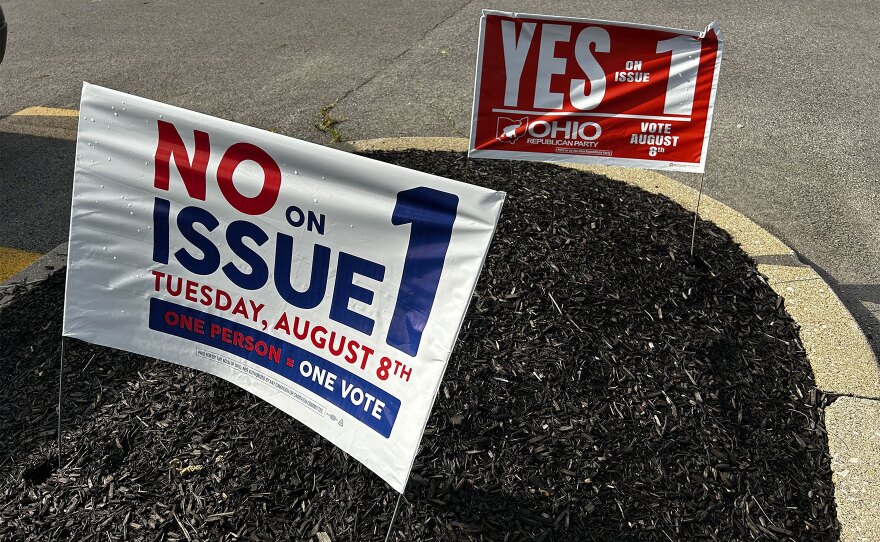In order to extend the campaign filing deadline so President Biden’s name would appear on the Ohio ballot, lawmakers insisted on another law banning foreign campaign contributions. Joining us now to discuss this law, its constitutionality, and possibly unintended—or maybe intended—consequences is Case Western Reserve University Law Professor Atiba Ellis.
Foreign Interference
Gov. Mike DeWine ordered the Ohio House and Senate back into session to pass a measure they had easily passed twice before and ensure Biden's name would appear on the ballot. The old deadline was 12 days before the Democratic convention, so Biden’s nomination would have come too late.
To some mild surprise, both the House and Senate voted to extend the deadline, allowing those Ohioans who want to vote for Joe Biden to do so.
But there was a catch. Republican lawmakers only passed the bill because it was tied to another bill that makes changes to rules for issues campaigns in Ohio. These are the issues campaigns that put abortion rights in the constitution, legalized recreational marijuana and might make political gerrymandering illegal.
The law passed by the legislature and signed by the governor makes foreign contributions to issues campaigns illegal.
The co-sponsor of the bill, Ohio Senator Rob McColley of northwest Ohio, said that the bill closes a loophole.
“We said, look, we don't want foreigners using these dark money groups as pass-throughs. We don't want foreigners trying to influence our elections. And so, we sought to close a loophole that is in Ohio law and federal law, quite frankly, where it's already illegal to contribute in candidate elections for these foreigners, but not for issues elections,” McColley said.
But Democrats complain the foreign donations ban is not the real motivation behind the new law.
House Minority Leader Alison Russo of suburban Columbus said, “In fact, if it had been just a very straightforward bill that had reiterated what the federal law is, all Democrats, myself included, would have voted for that. But that is not, in fact, what this bill does. This bill goes much further than that and has a number of issues.”
Governor DeWine predicts the law—like many recently passed ones—will end up before a judge.
“Whether it will be effective, I don't think anybody knows, because we don't know what courts will do. Any kind of controversial bill that's passed, or even partially controversial, ends up in court,” he said.
Snollygoster of the week
President Joe Biden issued an executive order this week limiting the number of migrants seeking asylum at the Mexican border. This order is very similar to one issued by then-President Trump, which Biden and Democrats previously denounced.
What has changed? Border crossings continue at a very rapid pace, Congress failed to pass a bipartisan deal to limit such crossings, and polls show immigration is hurting Biden’s bid for re-election.
If you have a suggestion for our "Snollygoster of the Week" award, a question or a comment, send them to snollygoster@wosu.org.


